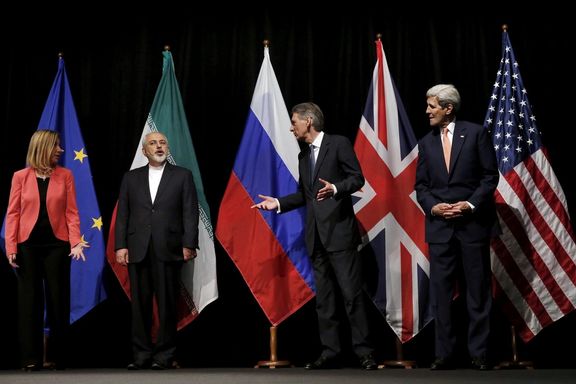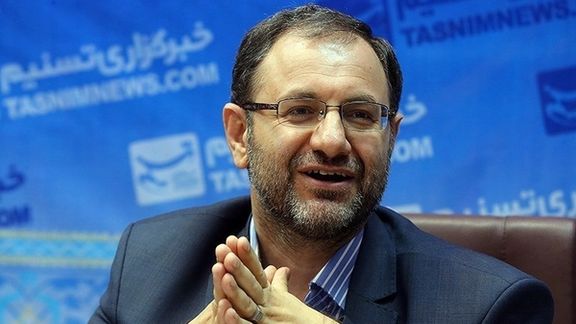

A member of Iran’s parliament said on Wednesday that the Islamic Revolutionary Guard Corps (IRGC) opposed a 2015 nuclear deal but ultimately complied after Supreme Leader Ali Khamenei urged support for Tehran's negotiators.
Nezamoddin Mousavi, former head of the IRGC's Fars News agency, told another Guards-linked outlet Tasnim News that the military organization was never satisfied with the deal, and that Supreme Leader Ali Khamenei never trusted the United States but insisted on supporting Iran’s negotiators.
"The Leader had a clear framework regarding the negotiations," Mousavi said. "He was not hopeful about them and viewed the United States as untrustworthy. But at the same time, he believed the negotiators should be treated with respect."
"The IRGC shared this view, and I understood that we should maintain respect for (foreign minister) Zarif and ensure a unified voice was heard from us, so it wouldn’t appear that there were two centers of authority in the country.” he added.
The remarks give rare insight into the policy outlook of the sprawling military group that is central to Tehran's domestic security and military stance abroad.
They appear to expose new details on the decision-making behind the doomed 2015 international nuclear deal that has become especially irksome to Iran's leadership after a provision paved the way for UN sanctions to be reimposed last month.
Hardliners in Iran have long criticized former Foreign Minister Mohammad Javad Zarif for accepting the Joint Comprehensive Plan of Action’s (JCPOA) snapback mechanism, viewing it as a concession that ultimately enabled the reimposition of sanctions on September 28.
The snapback mechanism allows any participant including the five permanent members of the UN Security Council plus Germany to reimpose UN sanctions on Iran in the event of alleged violations, without the possibility of a veto.
Russian Foreign Minister Sergei Lavrov said on Monday he was surprised by Iran’s agreement to the snapback condition, calling it a “legal trap.”
“To be honest, we were surprised. But if our Iranian partners accepted this formulation—which, frankly, was a legal trap—we had no grounds to object,” Lavrov said.

Mousavi, who as head of Revolutionary Guards-linked Fars News agency attended government and IRGC meetings on the Iran deal, said the Guards never promised to restrict their activities beyond the deal’s commitments.
He added that the Iranian government at the time was unhappy with the Guards’ missile tests and military exercises, causing internal disputes.
“We must respect the ruling bodies, and the IRGC is part of the establishment. The IRGC does not follow an expert’s command; it aligns with the Supreme Leader,” Mousavi said.
“If officials sign agreements beyond Iran’s commitments, the IRGC won’t accept them, but this does not imply belief in dual governance. After Americans failed to uphold their commitments, these revolutionary bodies demanded accountability.”
“Our clear and fundamental criticisms of the JCPOA are evident and have been published in media like Fars News Agency and Tasnim. Other sessions were held for finalization - not necessarily involving Mr. Zarif or government officials - and I saw no one convinced by the process or willing to justify it,” Mousavi added.
The United States withdrew from the Iran nuclear deal in 2018 under the first Trump administration. In response, Iran gradually reduced its compliance with the JCPOA and began enriching uranium at higher levels in 2019.
In June, Israel launched a surprise military offensive targeting Iran’s military and nuclear facilities, including assassinations of top officials. Iran retaliated with waves of drone and ballistic missile strikes.
The United States entered the conflict on June 22 with strikes on key nuclear sites in Natanz, Fordow and Isfahan, but brokered a ceasefire between Iran and Israel after 12 days of fighting on June 24.
Following the attacks, Iran halted cooperation with the International Atomic Energy Agency (IAEA) and the diplomatic impasse over Iran's nuclear activities continues.